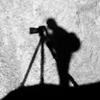Better colors
Sep 28, 2014 10:40:50 #
fhuhman
Loc: Jefferson City, MO
Some photographer on the Weather Channel claimed that you get better colors with a smaller aperture. He was talking about fall colors. Anyone heard of this?
Sep 28, 2014 10:44:43 #
Pablo8
Loc: Nottingham UK.
A smaller aperture is not a proviso for getting 'Better' colours. One could get more of a scene in sharp focus. Perhaps that is what he was inferring.
Sep 28, 2014 10:52:27 #
fhuhman wrote:
Some photographer on the Weather Channel claimed that you get better colors with a smaller aperture. He was talking about fall colors. Anyone heard of this?
True to a certain extent, simply because smaller apertures result in longer exposure times allowing for more color saturation. More true with film than digital. TOO long an exposure runs the risk of blurring the image due to wind movement of the foliage. Proper exposure and focus is your BEST option.
Sep 28, 2014 14:18:24 #
Try shooting on cloudy days, or after a rain, or slightly under-exposed. All will give you better color saturation.
Sep 28, 2014 15:35:44 #
Sep 28, 2014 16:49:07 #
fhuhman wrote:
Some photographer on the Weather Channel claimed that you get better colors with a smaller aperture. He was talking about fall colors. Anyone heard of this?
f, to get the best colors, you need the BEST light!
There is NO substitute for GOOD light, whether artificial or natural, regardless of aperture.
Good luck. ;-)
SS
Sep 29, 2014 06:13:42 #
fhuhman wrote:
Some photographer on the Weather Channel claimed that you get better colors with a smaller aperture. He was talking about fall colors. Anyone heard of this?
Obviously not someone who's advice you can trust.
Sep 29, 2014 06:14:48 #
MT Shooter wrote:
True to a certain extent, simply because smaller apertures result in longer exposure times allowing for more color saturation. More true with film than digital. TOO long an exposure runs the risk of blurring the image due to wind movement of the foliage. Proper exposure and focus is your BEST option.
I am not sure what a longer exposure has to do with color saturation - can you please elaborate on this one.
Sep 29, 2014 08:19:22 #
MT Shooter wrote:
True to a certain extent, simply because smaller apertures result in longer exposure times allowing for more color saturation. More true with film than digital. TOO long an exposure runs the risk of blurring the image due to wind movement of the foliage. Proper exposure and focus is your BEST option.
:thumbup:
Sep 29, 2014 08:39:27 #
Gene51 wrote:
Obviously not someone who's advice you can trust.
Especially when you consider how accurate his forecasts are. :D
Sep 29, 2014 09:09:22 #
MT Shooter wrote:
True to a certain extent, simply because smaller apertures result in longer exposure times allowing for more color saturation. More true with film than digital. TOO long an exposure runs the risk of blurring the image due to wind movement of the foliage. Proper exposure and focus is your BEST option.
I have just given this a lot of thought - and it is pure nonsense. Shutter speed has nothing to do with color saturation. Light is light. Digital sensors are linear in nature, unlike film which has a reciprocity failure factor to take into consideration, usually at exposures longer than a second.
So, an image of a static subject taken at F16 and 1/4 second will look no different than one taken at F4 and 1/30 sec - provided the lens's aperture and the camera's shutter speed are accurate.
Following the logic that longer shutter speeds increase saturation, then it would make sense that images taken with speedlights and strobes, which, on a Nikon SB900 can range from 1/880 sec at full power to 1/38500 sec at the lowest power, I should see greater saturation in colors when using the flash at low power compared to high power.
What is true is that sometimes overexposure can wash out colors - sky, specular reflections on surfaces, etc - and decreasing exposure can increase saturation, as will using a circular polarizer.
Changing exposure, not just the shutter speed, is what affects color saturation.
Sep 29, 2014 10:08:08 #
Gene51 wrote:
I have just given this a lot of thought - and it i... (show quote)
I think that this is probably the best answer of all that were offered.
Sep 29, 2014 10:21:57 #
Gene51 wrote:
I have just given this a lot of thought - and it i... (show quote)
Correction - said it backwards - low power=really short exposures = which should have very poor color saturation, and longer exposures (at high power) should be very saturated.
Sep 29, 2014 10:26:19 #
MT Shooter wrote:
True to a certain extent, simply because smaller apertures result in longer exposure times allowing for more color saturation. More true with film than digital. TOO long an exposure runs the risk of blurring the image due to wind movement of the foliage. Proper exposure and focus is your BEST option.
MT Shooter - so, a shot at - say - 1/30 @ f32 will have more saturated colors than the same scene shot at 1/125 @ f16, under the IDENTICAL lighting, the next frame, just as quick as I can change the camera settings?
Sep 29, 2014 11:01:26 #
Mark7829
Loc: Calfornia
fhuhman wrote:
Some photographer on the Weather Channel claimed that you get better colors with a smaller aperture. He was talking about fall colors. Anyone heard of this?
NOT TRUE or all of us would be shooting at f/59.
If you want to reply, then register here. Registration is free and your account is created instantly, so you can post right away.






